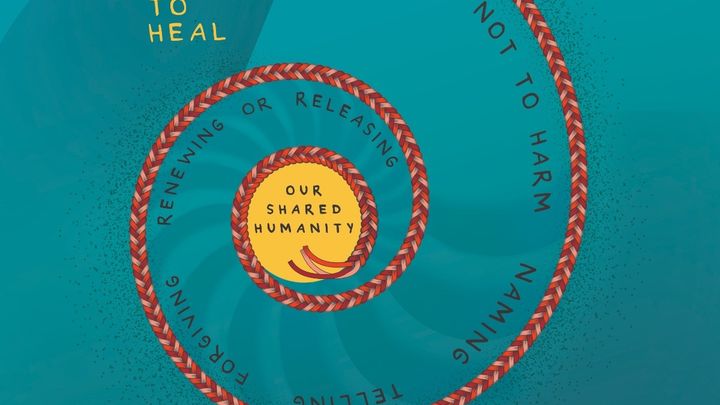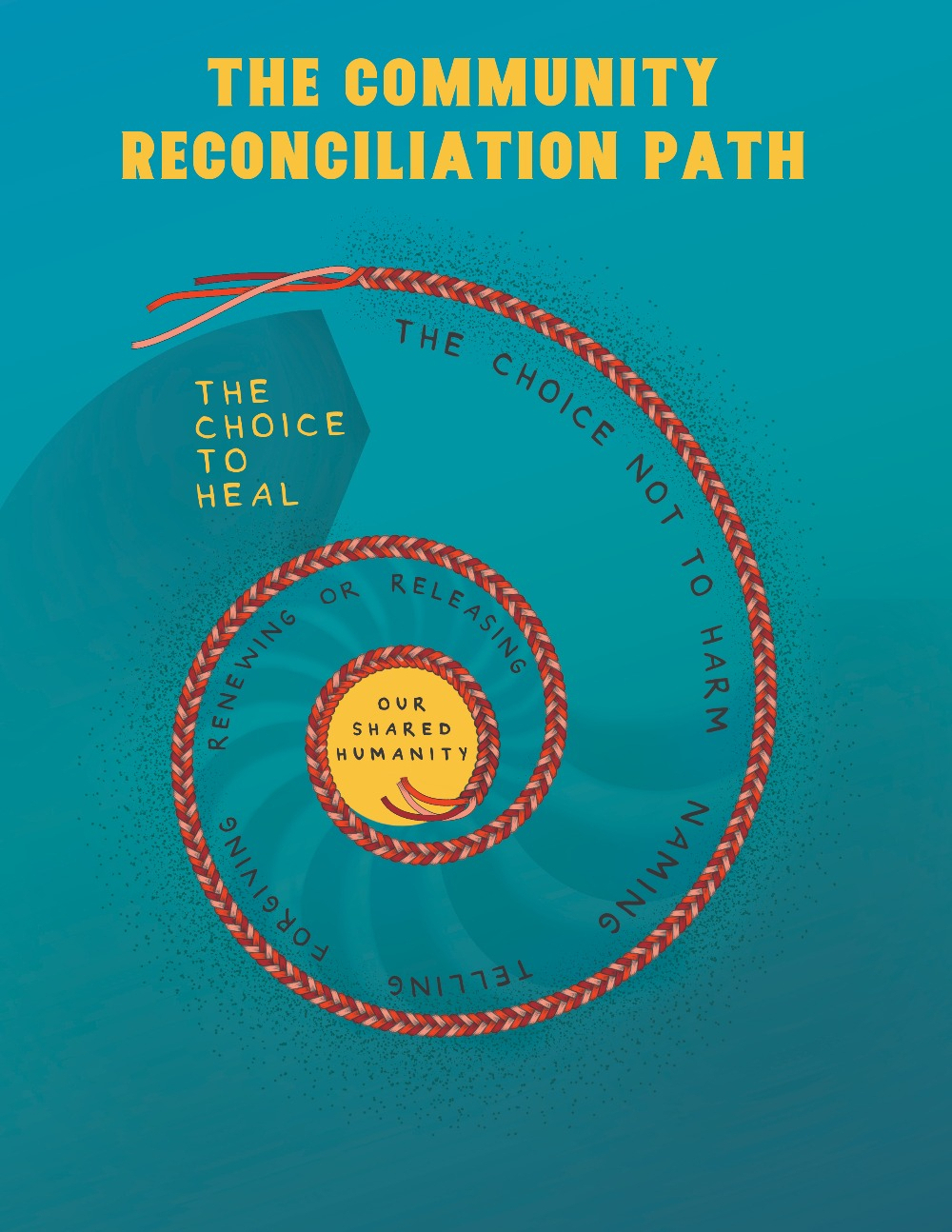
Taos Healing & Reconciliation Project 2019
Donativo protegido
Organized by Anita Rodriguez, Maija West and Daniel Escalante, and hosted by the Healing and Reconciliation Institute, a non-profit consulting firm.
The Taos Healing and Reconciliation project is a four-year pilot project, which seeks to address the current racial divides, through a facilitated discussion and workshop process, using a trauma-informed curriculum and proven reconciliation models.
We are currently completing our second year, with the Second Annual Healing weekend in Taos on October 4-6, 2019. Please support our work by making a donation to fund the many healers locally and internationally, who join us in Taos this year and every year, in honor of healing and reconciliation for all.
In the first year, we hosted a healing weekend event September 14-16, 2018, by bringing trauma-informed and curanderismo-informed healers together, from both Taos and from other parts of the country and world, to provide healing sessions for the community. The weekend’s events will include public speaking workshops and musical events hosted by the visiting healers. The weekend will culminate in a planning session for the next four years' activities.
The funds for the event will be used for healers, the space, food, and and travel (in that order).
In the second, third and fourth years, our goal is to host this event annually, and then culminate in year four with a weekend-long community reconciliation event in Ocotober 2021, using theater (teatro), to engage active participants and audience members in a community process. The key objective of having all involved participate and/or witness a physical demonstration of the principle of “shared humanity” as it connects with racial divides unique to Taos.
II. Reconciliation curriculum
The curriculum utilizes a framework, demonstrated visually in the Figures below, the “Community Reconciliation Path,” to provide a series of facilitated conversations about reconciliation. The other Figure, the “Braid of the Integrated Self,” is used as a visual tool to demonstrate the core principle of the curriculum, which emphasizes the importance of the individual, family and community being integral to each participant’s choice to participate in the project.
III. Healing philosophy
Curanderismo is defined by many, but for purposes of this project, the definition is that curanderismo is “conceptually holistic in nature; no separation is made between the mind and body, as in western medicine and psychology. It is simply the art of Hispanic healing (Peronne, ET. Al., 1988),” but is also “a comprehensive system for classification of illness with highly developed notions of disease causation (Hockmeyer, 1990).” Multiple forms of curanderismo will be offered during the healing weekend, including limpias and Yerbera sessions. This Mesoamerican-based healing is support by the evidentiary work of the contributors of the acclaimed Cultura Y Bienestar, whose contributors have been leaders in integrating these healing methods to licensed formal mental health centers. Those who have been invited are licensed psychologists and licensed marriage and family therapists.
The trauma-informed healers who have agreed to this year’s event have been invited because their work is supported by the research developed by internationally recognized trauma specialist, Dr. Bessel van der Kolk, described in his most recent work, The Body Keeps the Score, which emphasizes the benefits of body-focused therapies and the crucial role they play in healing from trauma. Dr. van der Kolk also contends that many of the addictions or challenges people face with alcohol, drugs, or food, typically have an origin in one or more traumatic events. The Maori Healers of New Zealand are internationally recognized for their healing work in this area, and at least one of the healers who practice this form will be at the event.
IV. Desired result
The desired result is to create an accessible framework, which can be utilized by the community of northern New Mexico to address current racial divides. By prioritizing healing, and by using culturally-effective healers in the first year, a strong foundation may be laid for a safe community event to help resolve some of the past harms that have impacted present racial divides.


Graphics © Maija West and Siana Sonoquie. Please request written permission to share and attribute appropriately.
The Taos Healing and Reconciliation project is a four-year pilot project, which seeks to address the current racial divides, through a facilitated discussion and workshop process, using a trauma-informed curriculum and proven reconciliation models.
We are currently completing our second year, with the Second Annual Healing weekend in Taos on October 4-6, 2019. Please support our work by making a donation to fund the many healers locally and internationally, who join us in Taos this year and every year, in honor of healing and reconciliation for all.
In the first year, we hosted a healing weekend event September 14-16, 2018, by bringing trauma-informed and curanderismo-informed healers together, from both Taos and from other parts of the country and world, to provide healing sessions for the community. The weekend’s events will include public speaking workshops and musical events hosted by the visiting healers. The weekend will culminate in a planning session for the next four years' activities.
The funds for the event will be used for healers, the space, food, and and travel (in that order).
In the second, third and fourth years, our goal is to host this event annually, and then culminate in year four with a weekend-long community reconciliation event in Ocotober 2021, using theater (teatro), to engage active participants and audience members in a community process. The key objective of having all involved participate and/or witness a physical demonstration of the principle of “shared humanity” as it connects with racial divides unique to Taos.
II. Reconciliation curriculum
The curriculum utilizes a framework, demonstrated visually in the Figures below, the “Community Reconciliation Path,” to provide a series of facilitated conversations about reconciliation. The other Figure, the “Braid of the Integrated Self,” is used as a visual tool to demonstrate the core principle of the curriculum, which emphasizes the importance of the individual, family and community being integral to each participant’s choice to participate in the project.
III. Healing philosophy
Curanderismo is defined by many, but for purposes of this project, the definition is that curanderismo is “conceptually holistic in nature; no separation is made between the mind and body, as in western medicine and psychology. It is simply the art of Hispanic healing (Peronne, ET. Al., 1988),” but is also “a comprehensive system for classification of illness with highly developed notions of disease causation (Hockmeyer, 1990).” Multiple forms of curanderismo will be offered during the healing weekend, including limpias and Yerbera sessions. This Mesoamerican-based healing is support by the evidentiary work of the contributors of the acclaimed Cultura Y Bienestar, whose contributors have been leaders in integrating these healing methods to licensed formal mental health centers. Those who have been invited are licensed psychologists and licensed marriage and family therapists.
The trauma-informed healers who have agreed to this year’s event have been invited because their work is supported by the research developed by internationally recognized trauma specialist, Dr. Bessel van der Kolk, described in his most recent work, The Body Keeps the Score, which emphasizes the benefits of body-focused therapies and the crucial role they play in healing from trauma. Dr. van der Kolk also contends that many of the addictions or challenges people face with alcohol, drugs, or food, typically have an origin in one or more traumatic events. The Maori Healers of New Zealand are internationally recognized for their healing work in this area, and at least one of the healers who practice this form will be at the event.
IV. Desired result
The desired result is to create an accessible framework, which can be utilized by the community of northern New Mexico to address current racial divides. By prioritizing healing, and by using culturally-effective healers in the first year, a strong foundation may be laid for a safe community event to help resolve some of the past harms that have impacted present racial divides.


Graphics © Maija West and Siana Sonoquie. Please request written permission to share and attribute appropriately.
 Coorganizadores (2)
Coorganizadores (2)
Maija West
Organizador
Taos, NM
Community Reconciliation
Miembro del equipo